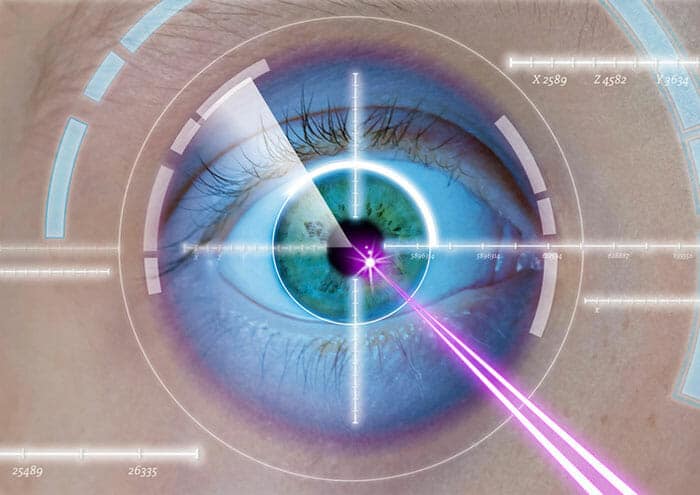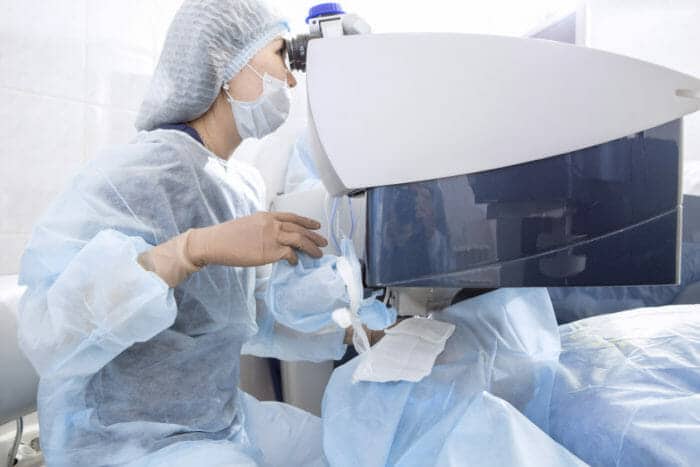Contact us with any questions about your best location or time.
// September 13, 2021
Seeking out surgical options to correct vision problems can seem intimidating at first glance. Most people have probably at least heard of LASIK or know that surgery can resolve glaucoma or cataract issues, but the details behind receiving these treatments might still seem a bit fuzzy.
Whether your upcoming surgery is cosmetic or medical in nature, it pays to be prepared. Here’s what you should know when readying for an upcoming eye surgery, what to expect from the procedure itself, and tips for a fast recovery.

Most eye surgeries are outpatient procedures, meaning there’s no need for a hospital stay following the appointment. However, depending on the type of surgery, you may have blurry vision for anywhere from a few hours to a few weeks afterward as your eyes heal. Be sure to make driving arrangements beforehand so you can get home safely and begin your recovery.
Like most procedures, your doctor will ask that you skip eating and drinking for a period before surgery. Patients should also alert their doctor to any medications they’re taking, as there might be specific instructions and restrictions for these as well.

While there are several types of eye surgeries, they all utilize either general anesthesia, topical anesthesia, or monitored sedation to alleviate any discomfort while the doctor works. Here’s a brief overview of what to expect from these common procedures:
LASIK — LASIK surgery corrects the shape of your cornea to improve the way your eyes focus on objects. It’s a popular procedure to fix both nearsightedness and farsightedness, as well as astigmatism. The procedure involves creating a small flap in the cornea and using a laser to reshape the tissue just below the surface. It’s not as scary as it might sound and generally takes about 30 minutes. Though patients may experience discomfort for a day or two afterward, they can expect improvements to their vision within a matter of hours.
PRK — PRK serves much the same purpose as LASIK, correcting nearsightedness, farsightedness, and astigmatism. It is also a laser vision corrective surgery, but unlike LASIK it is performed without cutting a flap in the cornea. Instead, the laser is used on the surface of the cornea to correct its shape. PRK has a slightly longer recovery window and is more likely to cause hazy eyesight for a short time. People might choose PRK over LASIK if they lead active lifestyles or have thin corneas.
The procedure only takes between 10–15 minutes. Because the procedure exposes the deeper layers of the cornea, discomfort can last up to a week or two while the protective surface cells grow back over the treated area. You’ll also be instructed to wear sunglasses outside for a prescribed period of time as a precaution. You can expect your vision to improve after three to five days, but it may be blurry and can take up to several weeks to fully improve.
Cataract Surgery — During cataract surgery, your eye’s cloudy natural lens is removed and replaced with a clear artificial lens. The procedure itself is simple and takes less than an hour to perform, and typically includes a mild sedative and eye drops to numb the eye. Like other eye surgeries, you’re likely to experience a few days of blurry vision and discomfort, and your ophthalmologist will give you detailed instructions for protecting your eyes for a period of time before returning to normal activities.
Glaucoma Surgery — Glaucoma is the result of fluid buildup in your eye that doesn’t drain properly, putting increased pressure on your optic nerve. Surgery to remove this pressure can preserve your eyesight if prescription eye drops and medications prove ineffective. There are various types of laser surgery that aim to unclog the fluid in the eye, which are all outpatient surgeries that can result in minor discomfort and blurry vision.
If laser surgery fails to improve matters, conventional glaucoma surgery is also an option. The recovery time is longer (1–4 weeks), but it can save the glaucoma from further damaging your eyes.

Laser surgery for vision correction and cataract removal
The steps for recovery after an eye surgery are straightforward. Your ophthalmologist will check your eyes after the procedure to ensure things look normal and prescribe eye drops to mitigate some of the discomfort and ward off potential infection. They will also give detailed instructions concerning activities to avoid and safety precautions to observe for a few weeks; the glare of the sun, athletic activities that put you at risk for getting hit in the face with an object, or even rubbing your eyes in your sleep might hinder the healing process.
Soon after your procedure (often the next day), you’ll schedule a follow-up with your ophthalmologist to check on your vision’s progress and get the doctor’s OK to resume driving and other activities. At least one additional follow-up to again check on the healing process is common.
Excel Eye doctors have been performing LASIK eye surgery since 1997. We use the very latest technology and offer patients the most advanced laser approved by the FDA. If you’re considering LASIK, PRK, or something more cosmetic, the eye care professionals at Excel Eye Center will work with you to determine which procedure best fits your needs. Call to schedule your free LASIK screening today.